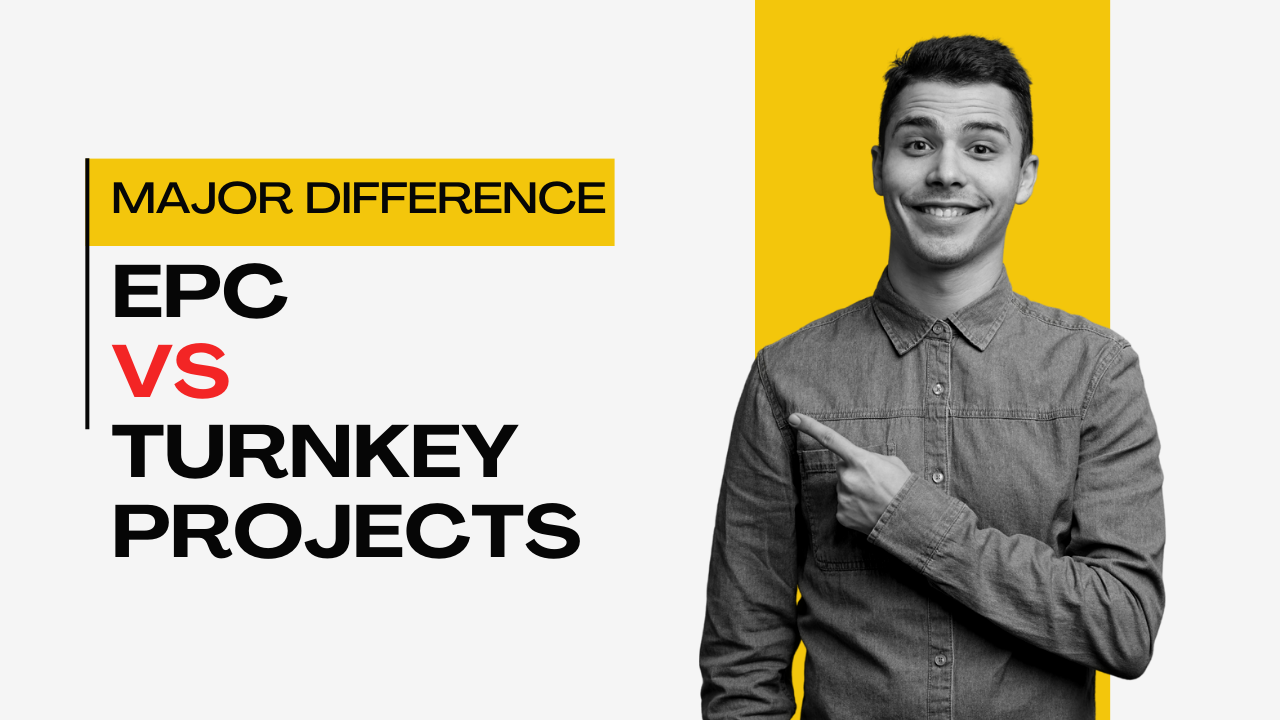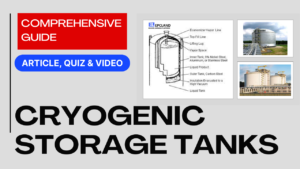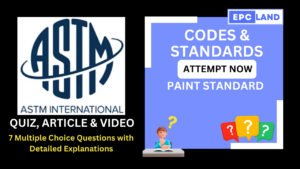EPC vs Turnkey Projects, In the world of project management, two common terms often come up: EPC (Engineering, Procurement, and Construction) and Turnkey projects. Both of these approaches play a crucial role in various industries, but they differ in their scope, responsibilities, and implications. In this comprehensive guide, we’ll delve into the distinctions between EPC and Turnkey projects and provide insights to help you make an informed decision when choosing the right option for your project.
Introduction
When embarking on a major project, such as constructing a facility or implementing a complex system, choosing the right project management approach is essential. This is where EPC and Turnkey projects come into play. Let’s begin by understanding the fundamental concepts of each.
Table of Contents
Don’t miss the Complete Course on Piping Engineering: Check Now
By EPCLand.com
EPC (Engineering, Procurement, and Construction)
EPC projects involve a structured approach that encompasses engineering, procurement, and construction phases. In this model, the project owner collaborates with an EPC contractor who takes on the responsibility of designing, procuring materials, and executing construction. The EPC contractor is accountable for delivering a functional facility to the owner, often on a fixed budget and schedule.
Turnkey Projects
Turnkey projects, on the other hand, are characterized by a comprehensive approach where the project is delivered as a complete package. The term “turnkey” implies that the project is ready for immediate use once handed over to the owner. In a turnkey project, the contractor handles all aspects of the project, from design and procurement to construction and testing.
EPC Projects: A Closer Look
Key Characteristics
EPC projects offer a structured and phased approach, making them suitable for complex projects where each phase requires specialized expertise. The project owner benefits from having a single point of contact (the EPC contractor) throughout the project’s lifecycle.
Advantages
- Expertise: EPC contractors are often experts in their respective fields, ensuring a high level of technical competence.
- Single Responsibility: The EPC contractor manages the entire project, streamlining communication and accountability.
- Risk Management: Detailed planning and scheduling help mitigate risks and ensure timely project completion.
Considerations
- Cost: EPC projects might come with a higher upfront cost due to the expertise and comprehensive services provided.
- Flexibility: Changes during the project can be challenging to accommodate due to the structured nature of EPC projects.
Turnkey Projects: A Closer Look
Key Characteristics
Turnkey projects are known for their simplicity and convenience. The project owner receives a ready-to-use product without having to manage various project phases separately.
Advantages
- Simplicity: Turnkey projects offer a hassle-free experience as the contractor handles all project aspects.
- Time Efficiency: Projects are often completed faster since design, procurement, and construction overlap.
- Reduced Owner Involvement: The project owner can focus on their core business while the contractor handles the project.
Considerations
- Less Owner Control: The owner might have limited involvement in the project’s details, which could lead to concerns about customization.
- Quality Assurance: While contractors strive for quality, the owner’s oversight is essential to ensure the final product meets expectations.
Choosing the Right Approach for EPC vs Turnkey Projects
Project Complexity
For intricate projects requiring specialized engineering and meticulous planning, EPC might be the better choice. This approach ensures that every phase is carefully executed to meet technical specifications.
Time Sensitivity
If time is of the essence and immediate usability is a priority, a Turnkey project might be preferable. The integrated approach can expedite project completion.
Budget Considerations
EPC projects might involve higher upfront costs, but they offer comprehensive services. Turnkey projects could have a more predictable budget, making them suitable for those with stricter financial constraints.
FAQs on EPC vs Turnkey Projects
Q1: What does EPC stand for? A1: EPC stands for Engineering, Procurement, and Construction.
Q2: Is a Turnkey project ready to use immediately? A2: Yes, a Turnkey project is designed to be ready for immediate use once handed over to the owner.
Q3: Which approach is better for complex projects? A3: EPC projects are better suited for complex projects requiring specialized expertise and structured execution.
Q4: Can I customize a Turnkey project? A4: While Turnkey projects offer convenience, customization might be limited compared to EPC projects.
Q5: What’s the main advantage of Turnkey projects? A5: The main advantage of Turnkey projects is their simplicity, as contractors handle all aspects of the project, allowing the owner to focus on their core business.
Conclusion on EPC vs Turnkey Projects
In the realm of project management, choosing between EPC and Turnkey approaches involves evaluating the project’s complexity, time sensitivity, and budget constraints. EPC projects offer structured expertise, while Turnkey projects provide a hassle-free experience. By understanding the differences and weighing the advantages and considerations, you can make an informed decision that aligns with your project’s goals and requirements.
Recommended courses (Published on EPCLand)
- Basics of Piping Engineering
- Piping Layout Engineering
- Piping Material Engineering
- Piping Stress Analysis
- Complete Course on Piping Engineering
- Material Requisitions
- Piping Material Specifications
- Valve Material Specifications
Don’t miss the published articles on following:
Related Video
Attempt Quiz
Question 1:
What does EPC stand for in project management?
Explanation: EPC stands for Engineering, Procurement, and Construction. It is a project execution strategy where a single entity is responsible for the design, procurement, and construction of a project.
Question 2:
What is the key characteristic of a turnkey project?
Explanation: The key characteristic of a turnkey project is that a single entity takes on comprehensive responsibility for the entire project, including design, construction, and often even operation.
Question 3:
Which project approach offers more control over project quality and cost?
Explanation: The EPC approach offers more control over project quality and cost as a single entity manages the entire project from design to construction, allowing for better coordination and optimization.
Question 4:
Which type of project is likely to involve multiple contractors and subcontractors?
Explanation: Turnkey projects are more likely to involve multiple contractors and subcontractors due to the comprehensive nature of the project where different expertise is required.
Question 5:
Which project approach is suitable for clients seeking a single point of contact?
Explanation: The turnkey approach is suitable for clients seeking a single point of contact, as the turnkey provider assumes overall responsibility for the project’s successful completion.



